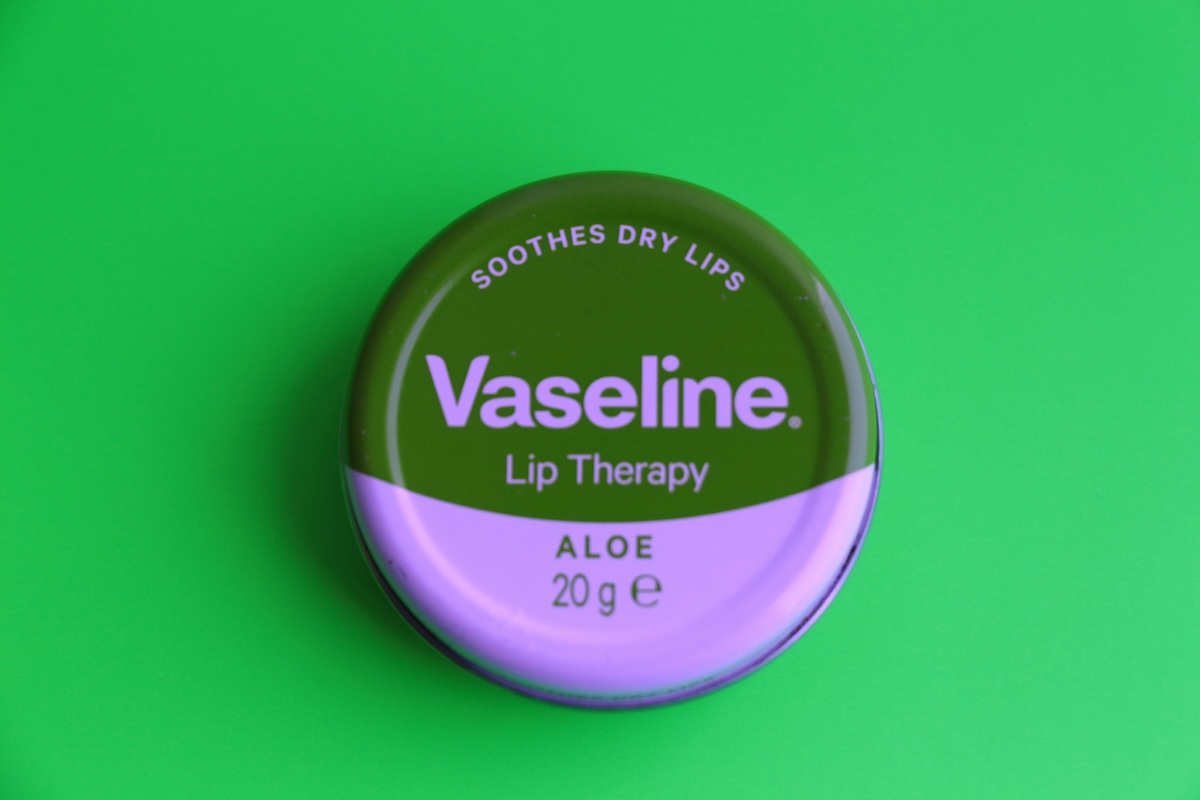One of the trendiest products on social media over the last year isn’t from an elusive French pharmacy brand. Instead, one of the moment’s biggest products is a regular drugstore staple you likely already have in your bathroom: Vaseline.
The Google of petroleum jelly began trending because of the concept of “slugging” (which has nothing to do with baseball).
“With slugging, active ingredients are applied first, followed by a lighter moisturizer like hyaluronic acid, and then sealed with petroleum jelly to lock in moisture,” said Viktoryia Kazlouskaya, MD, PhD, a dermatologist. “While this technique may benefit those with dry skin, it’s not necessarily suitable or essential for everyone.”
Even before TikTok, Vaseline was billed as a miracle skincare product, even a quick fix for chapped lips. You also might hear mixed views on using Petroleum jelly for acne treatment. What’s the real deal? Dermatologists weighed in.

What are the benefits of petroleum jelly for skincare?
Let’s start with defining petroleum jelly.
“Petroleum jelly, commonly marketed as Vaseline, is made from natural waxes and mineral oils that are safe for external use to help lock in moisture and relieve dryness on the skin and lips,” said Dr. Samuel Hetz, MD, the medical director of Concept Medical who focuses on aesthetic medicine and skin disorders.
Dr. Hetz says locking in moisture and hydration is the main benefit of using Vaseline for skincare.
“Vaseline is insoluble in water,” Dr. Hetz says. “Therefore, when used on top of hydrating skin and lip products, it can add an extra layer of hydration protection.”
Dr. Kazlouskaya echoed this sentiment.
“Petroleum jelly possesses unique qualities, such as its ability to prevent moisture from evaporating, surpassing that of any similar component,” Dr. Kazlouskaya said. “This feature allows active ingredients to effectively penetrate the skin.”
Yet, dermatologists share that petroleum jelly has a few other less-talked-about perks, most notably the following:
- It’s healing. In addition to locking in moisture to protect against dry skin, Vaseline can help heal the issue (including chapped lips). “Using petroleum jelly regularly on particularly dry spots on the skin, such as cracked lips and ankles, can help trap moisture in the skin and allow it to heal,” Dr. Hetz said.
- Antimicrobial properties. “Its lack of water in the composition gives it antimicrobial properties, as bacteria typically thrive in water-rich environments,” Dr. Kazlouskaya said.
- Non-allergenic. There’s a reason pediatricians offer Vaseline as a diaper rash cream alternative, even to parents of newborns. “Petroleum jelly does not have any additives like fragrance or other irritating ingredients,” Dr. Hetz said. As a result, risks of allergic reactions or additional irritation are low when applying petroleum jelly.
- Help with dryness associated with acne treatment. We’ll get to pore-clogging rumors. However, Dr. Kazlouskaya recommends using petroleum jelly for some patients with acne who may be using products known to dry out the skin. “From personal experience, I recommend petroleum jelly to patients undergoing acne treatment with medications like Accutane or topical tretinoin, particularly if they have dry, sensitive skin, as they rarely encounter issues,” she said.

Are there risks to using petroleum jelly on the skin?
Petroleum jelly is generally low-risk.
“Despite its origins in petroleum, it undergoes a vigorous purification process to eliminate potentially harmful substances, rendering it extremely safe for use,” Dr. Kazlouskaya said. “Its safety has been supported by its extensive history of use dating back to 1859, making it permissible even for newborns. There are no known risks associated with using petroleum jelly.”
What about the idea that petroleum jelly can clog the pores?
“Petroleum jelly is noncomedogenic, which means it will not block the pores in a way that causes acne,” Dr. Hetz said. “However, if there is dirt and natural oils blocking the pores, and you apply Vaseline, you will be essentially locking in that dirt, which could lead to breakouts. People with naturally oily skin would be more susceptible to this issue.”
You also may not like how petroleum jelly feels on your face.
“Some users may experience increased sweating and a sensation of heat when using petroleum jelly in hot, humid climates,” Dr. Kazlouskaya said. “In such cases, opting for a lighter moisturizer may be more suitable.”

How to apply Vaseline to skin
Ready to give Vaseline a try? Dr. Hetz shared the best way to apply it to your skin:
- Apply any other products. “Petroleum jelly should be the last layer,” Dr. Hetz said.
- Ensure hands are clean and dry
- Spread evenly over the skin, wiping any excess that causes discomfort
“Be wary that it will not be easily absorbed, so any clothing you put on top of petroleum jelly will see some transfer,” he said. “Stop using it if it causes breakouts or once the dry skin area you were treating returns to normal texture.”
Dr. Kazlouskaya flags that petrolatum is commonly found on the skincare product ingredients list if you need something different.
“For those wishing to avoid it, alternative occlusive moisturizing ingredients include mineral oils, silicones, dimethicone, waxes, and lanolin,” Dr. Kazlouskaya said.

Summary
Vaseline has gained popularity on TikTok, with fans saying the petroleum jelly helps them with dry skin. Experts share that Vaseline can help lock in moisture, keeping the skin hydrated. Vaseline and other petroleum jellies can help heal dry skin, such as cracked feet or chapped lips. One dermatologist even recommends Vaseline to patients undergoing acne treatment who are prone to dry skin. The data that petroleum jelly clogs pores aren’t substantial, though some people may not like the greasy feeling. Dermatologists share that everyone should stop using the product if they notice breakouts or irritation. Generally, Vaseline causes few allergies or issues, and even newborns can use the product.




